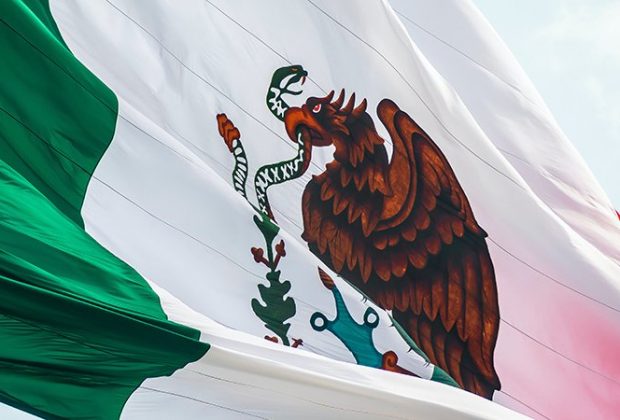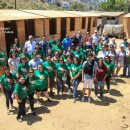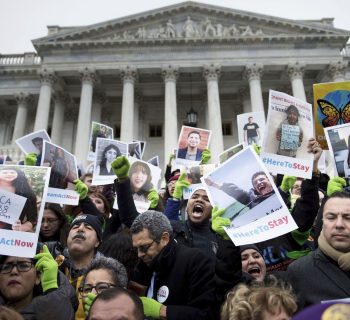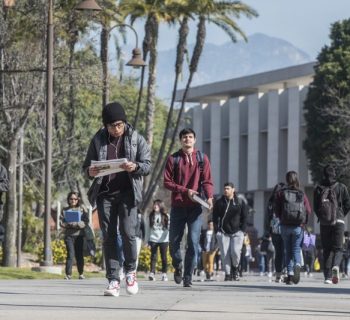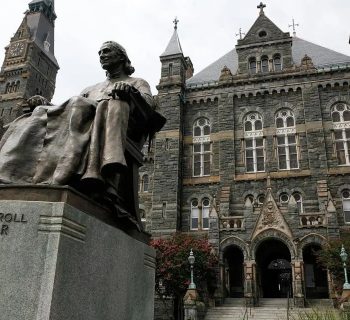Originally published on: sdsualumni.org
San Diego State University has entered into an agreement with the government of Mexico that paves the way for the expansion of binational cooperation across a wide range of initiatives.
The non-binding memorandum of understanding (MOU) between SDSU, the Secretariat of Public Education of Mexico and the Secretariat of Public Education of Baja California will serve as a framework for future collaborations in research, academic and educational activities, joint events, private sector partnerships and other areas.
“This is an historic moment for our university,” SDSU President Adela de la Torre said. “We’ve long embraced our proximity to the U.S.-Mexico border as a unique opportunity for mutually beneficial collaboration and partnership. This agreement builds off that success and sets San Diego State on a course to become the premier binational university in the U.S.”
The MOU aligns with the vision of SDSU as a Hispanic-Serving Institution on the border outlined in the university’s new five-year strategic plan, "We Rise We Defy: Transcending Borders, Transforming Lives."
“Historically, SDSU has engaged in a variety of transborder programs, research projects and relationship building, but it has often been in silos,” said SDSU’s Interim Associate Vice President for International Affairs Cristina Alfaro. “Individual colleges, departments, centers or professors have done their own excellent work in Mexico, but it hasn't been under a coherent umbrella. What we're attempting to do with this MOU is to unify and work with researchers, practitioners, and transborder projects within one solid sustainable framework.”
The MOU paves the way for SDSU to work closely with Mexico’s public universities, teacher colleges and K-12 institutions. Alfaro said she envisions possibilities such as joint research, joint supervision of doctoral students and the expansion of collaborative online international learning (COIL) programs, where faculty in different countries work together to develop shared classroom components.
Luciano Concheiro Bórquez, Mexico’s Sub-Secretary of Higher Education, and Catalino Zavala Márquez, Secretary of Education for the State of Baja California, released statements praising the agreement.
“The signed MOU strengthens our institutions and proves our mutual respect, reciprocity and will to collaborate in projects that are sensitive to the challenges and opportunities of our borders, from an intercultural, binational and bilingual perspective,” Concheiro Bórquez said.
Added Zavala Márquez: “In the education sector, for the Baja California State Government, and for the Secretary of Education this Memorandum is of great relevance. Without a doubt, it will be favorable for long-term improvement of teaching practices and the construction of common curricula, particularly in teacher training and the search for graduate profiles that meet the needs of the diverse multicultural society in our Cali-Baja megaregion.”
NEXT STEPS
SDSU and its partners in Mexico next plan to engage in a series of webinars to discuss action steps for future collaboration in multiple areas.
The MOU was announced at SDSU’s RE:BORDER binational conference in November. The second annual conference exploring key regional issues and innovative solutions drew more than 1,200 registrants and was held virtually because of the COVID-19 pandemic. The RE:BORDER conference itself served as the first collaborative project between San Diego State University, the Secretariat of Public Education of Mexico, the Secretariat of Public Education of Baja California, El Colegio de la Frontera Norte (El COLEF) and Universidad Autónoma de Baja California (UABC).
Tony Thurmond, California State Superintendent of Public Instruction, was among the officials who participated in the conference.
"I am grateful to Superintendent Thurmond for his participation in RE:BORDER as well as for the support he has shown for strengthening binational relations between the educational systems of California and Mexico," Alfaro said.
Originally published on: sdsualumni.org

